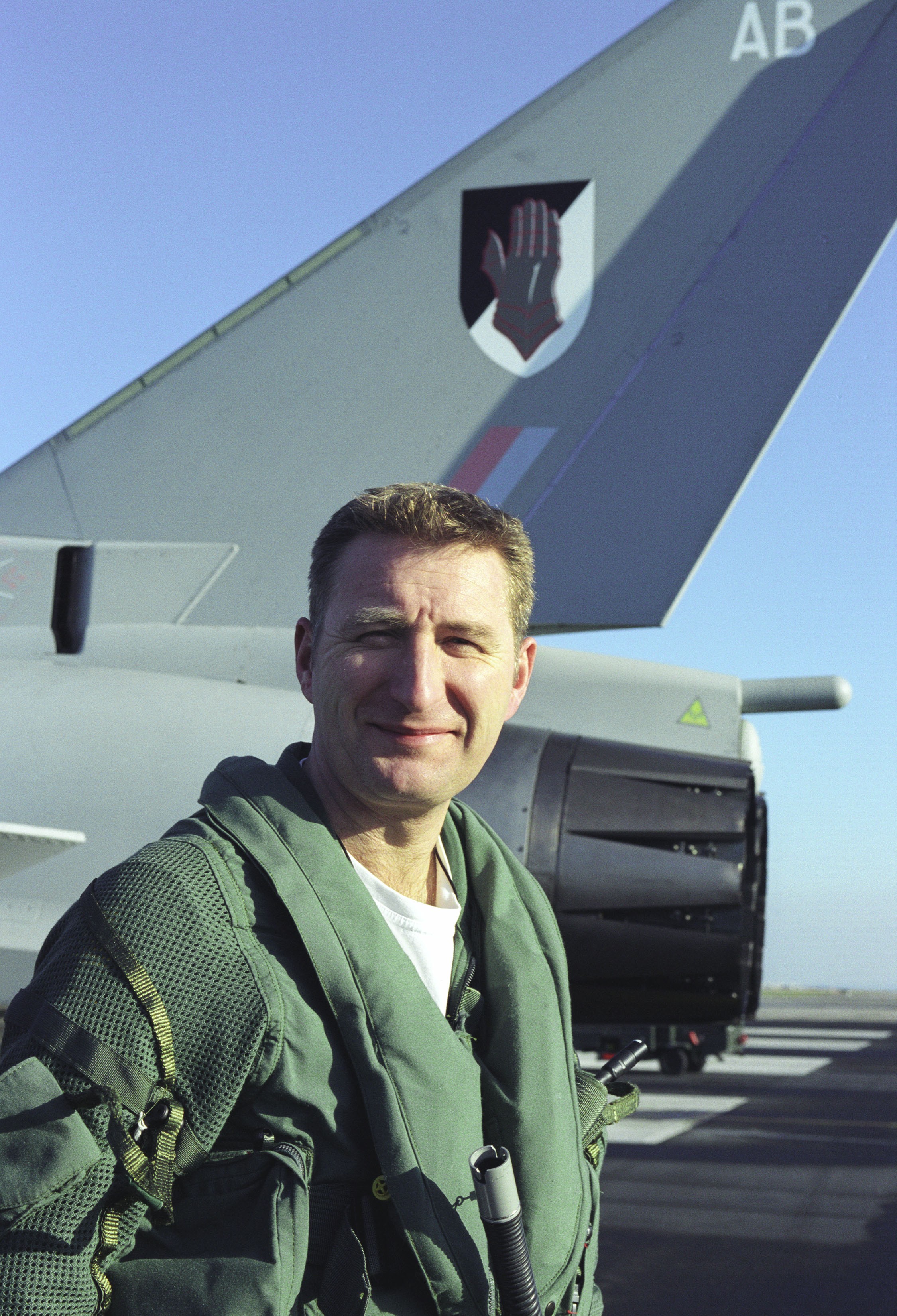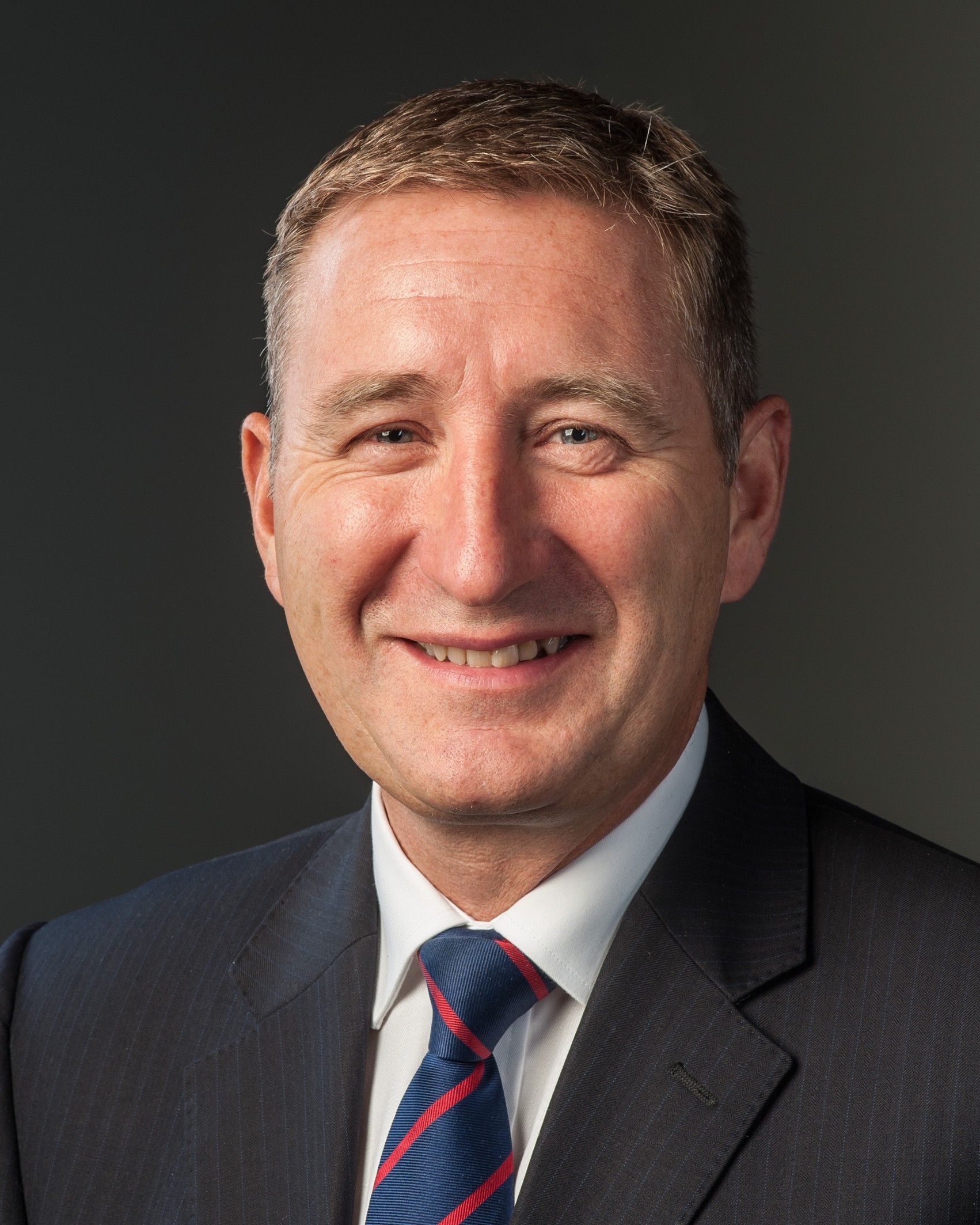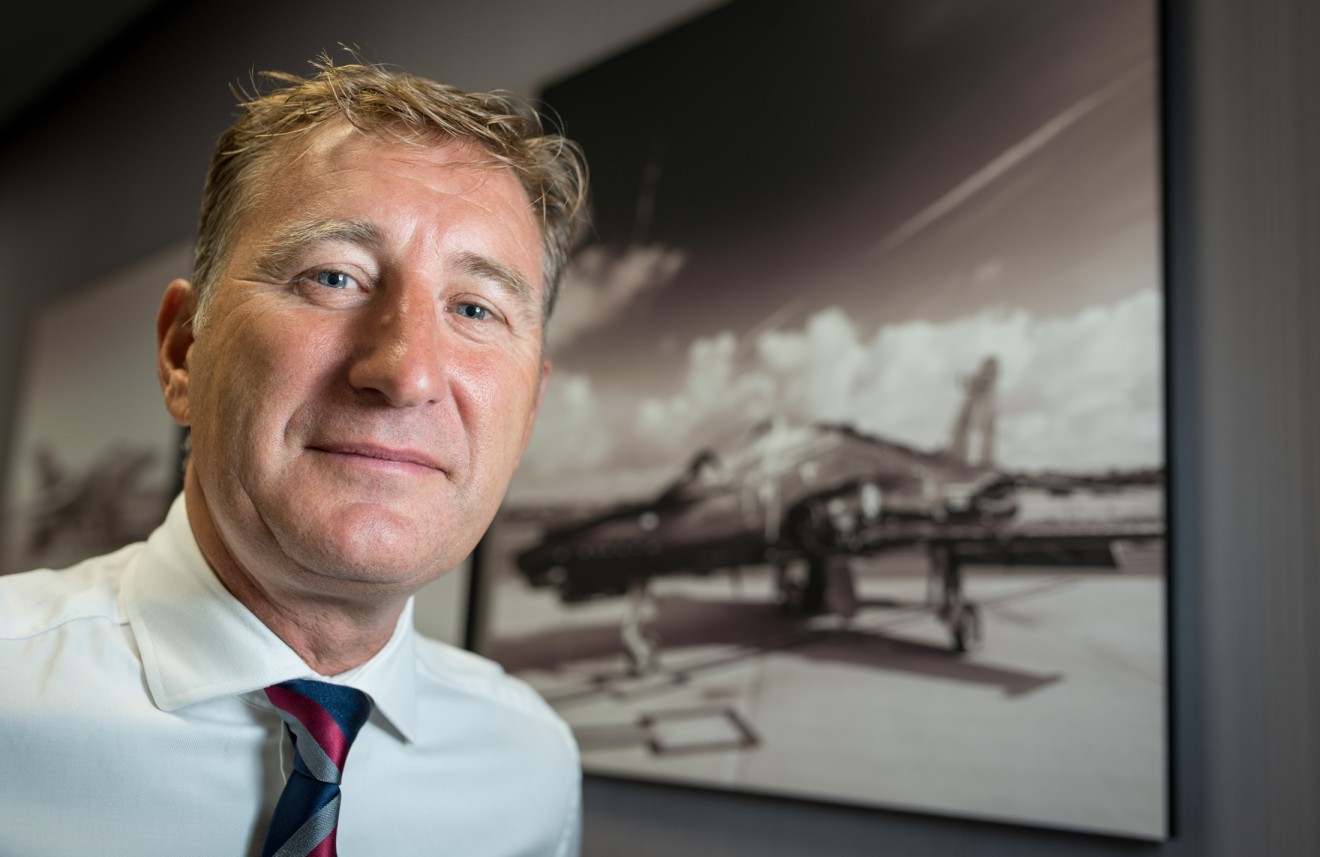“It was cold outside,” recalls Archie, who at the time was BAE Systems’ Entry-Into-Service Manager and Chief Flying Instructor. “We’d just been zipped into the full immersion suit and as I was pulling on the full-coverage anti-G suit I started to think.
“When the kit was being designed, I’d done a lot of work in the centrifuge to ensure it worked. It struck me, at that moment, how many thousands of hours of effort, from hundreds of different people, right across Europe, had gone into getting us to that point that Valentine’s Day. In that instant I suddenly felt immensely privileged.”
His only nerves centred on making sure he didn’t let people down. “We all felt we were representing the wider team.”
Following that successful flight Archie spent months working on the training syllabus for pilots, including their simulator work, as he built an impressive career.
Fast forward 17 years and Archie — who joined the RAF in 1983, gaining his wings in 1986 –remains heavily involved in the Eurofighter world. Today, he’s BAE Systems’ Director of Operational Training for the Air Sector.
His office, within earshot of the runway used by BT001, contains a whiteboard with a curious hand-drawn map. It’s not immediately clear where it’s supposed to feature.
“It’s the UK flipped 90 degrees on its side,” says Archie, noticing the puzzled looks. “It’s done that way to demonstrate to people the threats that the RAF have to counter and that we are supporting.”
Red blocks scattered across the map indicate high threat areas. Green blocks show where the Eurofighter simulators are based.
And it’s the training element that’s the focus of Archie’s work. He runs Typhoon Future Synthetic Training making sure it meets the UK’s synthetic training needs.

“The aircraft is a lot more complex today than the one I used to fly. We are asking young pilots to become swing-role pilots in swift order and it’s a tall ask. They’ll arrive on base as combat-ready pilots and progress through their squadron all the way up to mission commander and training is a fundamental focus. A lot of attention is given to the operational use of the aircraft but operational training, which sometimes gets overlooked, is hugely important.
“However, with satellites able to track every single move of these highly-capable aircraft, it’s important that you don’t show your tactics to adversaries who will be watching what you do.”
So, just as in 2003 when Archie was at the cutting edge, today he is at the forefront of developing a synthetic training regime that’s fit for the future.
JOINING THE DOTS
The security aspect is one thing. Fuel budgets are another but, there’s also the fidelity of synthetic systems that these days allow pilots to train ‘over Syria’ for a range of scenarios without ever leaving terra firma. That said, there are elements that need to be addressed.
“If you go into a simulator everything is spot on — the radar, the communications and so on. But, everything’s just a little too perfect. In the future we need to make it more real. We will include real people in the network. The concept is not new — it’s called Defence Operational Training Capability (DOTC) and covers air, land and sea.”
While the idea has been some time in coming, 2021 is set to see the launch of DOTC. It means pilots from RAF Coningsby will be able to train with pilots from RAF Lossiemouth and, in time, the environment will grow richer with more elements joining. The DOTC concept will ultimately join up maritime and land-based simulators to create an all-encompassing UK training capability, DOTC (Joint) – literally joining up the dots.
Of course, pilots will still get airborne to validate their radar, the DASS, the missile launch success and so on. Archie believes that this could one day lead to a ‘live-virtual construct’, where the two-dimensional DOTC training is mixed in the airborne environment.
“Pilots would be able to validate the systems and training in the air where their bodies will suffer from G forces, but the most immersive fighter training would take place in the synthetic environment.”
Archie says that for BAE Systems, who are closely aligned with the RAF, the future raises some interesting questions. For example, how will this switch to greater use of synthetics impact on day-to-day activity on the bases?
For Archie, the answer is for industry to get closer to support the military output. “For me, the real KPI is about capability; the trained pilots, trained battlespace managers, and the broad spectrum of highly-skilled personnel required to manage the air defence system. The fundamental change is that simulation used to be focused on the trainer. Now it’s about the operational pilot developing skills.
“Focusing on the simulators misses the point. It needs to be a fully integrated environment focused on information advantage – getting information accurately, securely and quickly to allow operators to make critical decisions.
“This includes mission planning, data management, and effective programming, to make sense of this increasingly complex environment.”
New simulators are on the horizon but for Archie the biggest challenge will be cultural. “We will need a different mind-set about how we collectively train. That will be a challenge.”
It will be a first. A new test. However, for the man who stepped into the first UK Typhoon, it’s just another day in the office.

